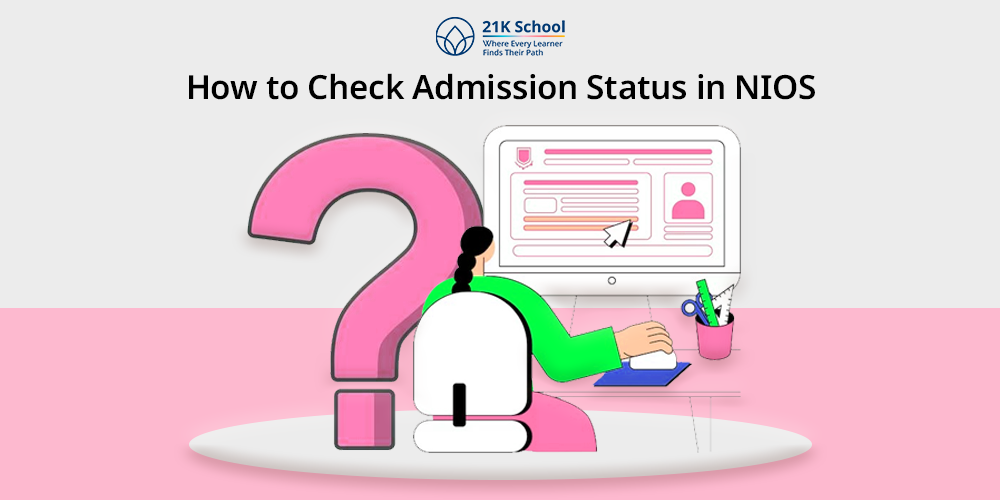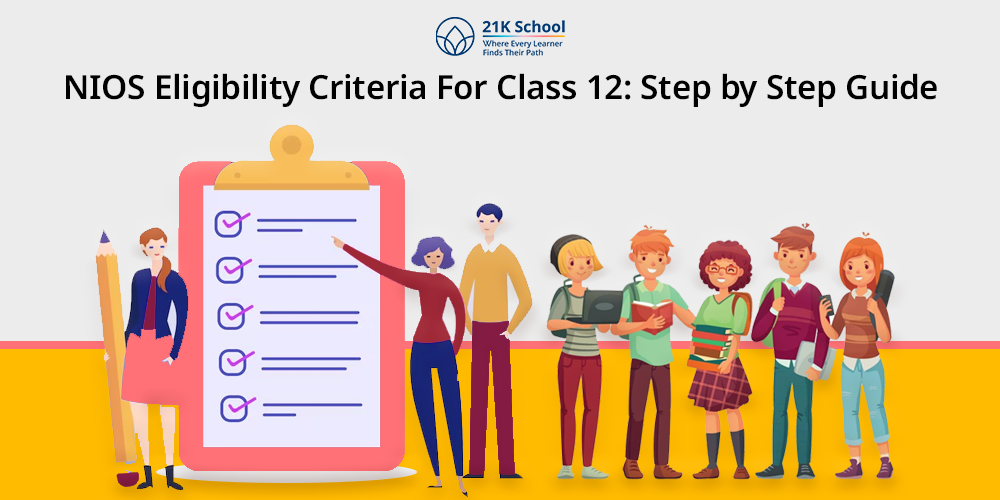Online Schooling & Education Blog: Tips, Trends & How-To Guides
How Many Times NIOS Exam is Held in a Year: Session and Evaluation Criteria
Do you know how many times a NIOS examination is conducted in a year? conducts examinations multiple times in a… Read More
Last updated on: 11 Jul, 2025
How to Check Admission Status in NIOS: Easy Steps, Meaning of Admission Status, and More!
Are you worried about your admission, but don’t know how to check the status? The releases an admission list, which… Read More
Educational Provisions for Learning Disability in India: Know Them All!
Education is very important in defining the future of an individual and the society. in a diverse nation as India… Read More
NIOS Eligibility Criteria For Class 12: Top 4 Criteria and Detailed Guidelines
If you are someone looking forward to . You are at the right place. No matter if you are a… Read More
What is PCP in NIOS: Features, Structure, Objectives, Benefits, and More!
In today’s changing world the education system is evolving. Now it is more flexible and especially for learners who are… Read More
Good Touch and Bad Touch- How to Teach Children About Body Safety
ContentsWhat is Bad Touch and Good Touch?What Is a Good Touch? What Is Bad Touch? 10 Ways How to Teach Good Touch… Read More
Importance of Education: 10 Powerful Reasons Why It Matters in Today’s World
is capable of changing or transforming individuals and societies. That’s why its importance cannot be overlooked. It makes the basis… Read More
Does IIT Accept NIOS: Eligibility, Admission Process, and Tips For You
Are you a NIOS student and worried about whether you are eligible for IIT or not? Yes, IIT accepts NIOS… Read More
10 Disadvantages of Distance Learning: Explained in Details
Distance learning has rapidly grown in popularity over the past decade, especially with the rise of digital platforms and global… Read More
A Guide to Special Education Inclusion Laws – Know Them All!
Have you ever thought about what it really means for a school to be “inclusive”? Or why is it so… Read More










